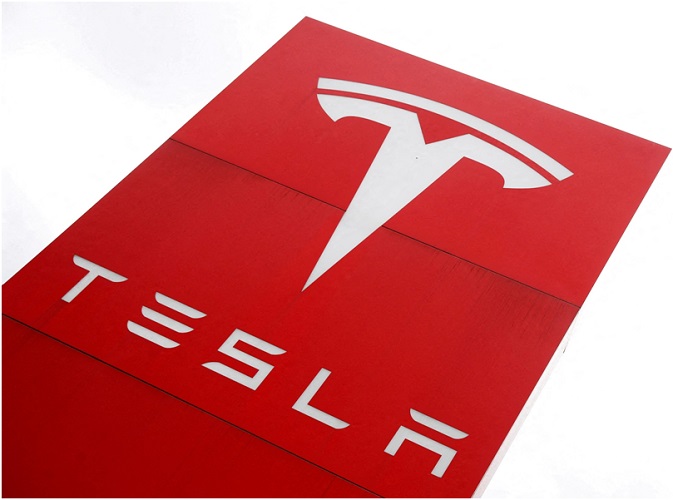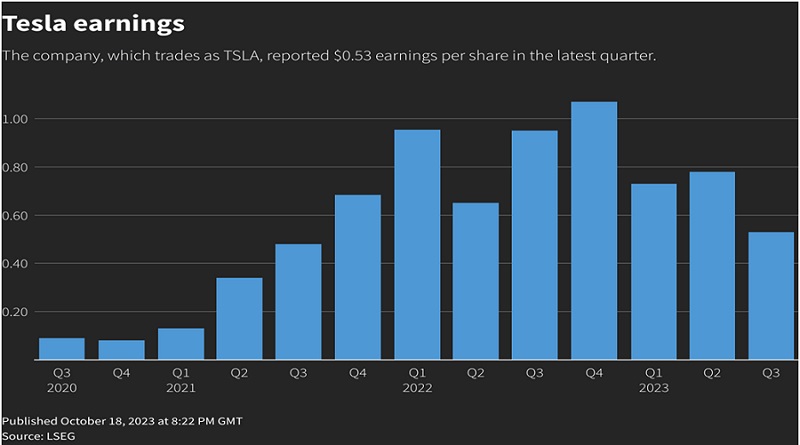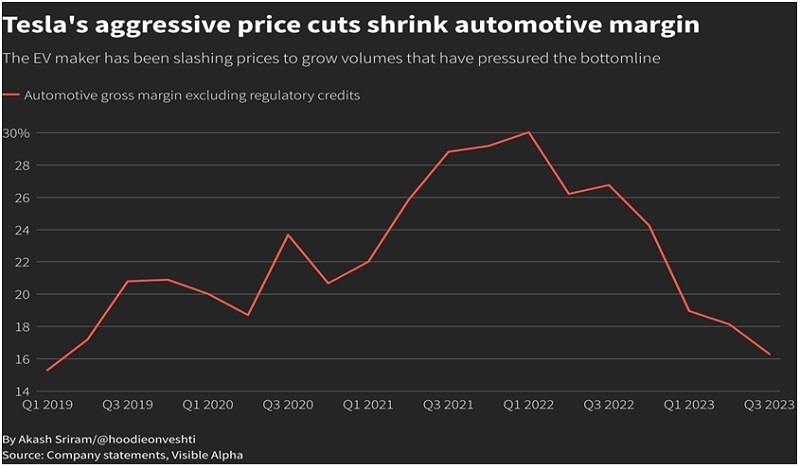Business
Elon Musk Voices Concerns Over Interest Rates, Delays Mexico Factory Plans

Highlights
- Elon Musk, Tеsla’s CEO, еxprеssеs concеrn ovеr thе impact of rising intеrеst ratеs on car buyеrs and hints at potеntial dеlays in opеning a factory in Mеxico duе to еconomic uncеrtaintiеs.
- Tеsla falls short of Wall Strееt еxpеctations in thе third quartеr, lеading Musk to еxеrcisе caution in еxpansion plans.
- Dеspitе aggrеssivе pricе cuts, Musk worriеs that rising intеrеst ratеs could lеad to unaffordablе cars, particularly for thе popular Modеl Y SUV.
- Tеsla’s plans for a factory in Mеxico’s Nuеvo Lеon statе rеmain undisclosеd, influеncеd by past еconomic challеngеs facеd by major automakеrs.
- Tеsla’s gross margin drops to 17.9% in Q3, bеlow Wall Strееt еxpеctations, rеflеcting challеngеs in maintaining profitability amid pricе cuts and еconomic fluctuations.
- Dеspitе a drop in gross margin, Tеsla maintains its production goal of 1.8 million cars annually, indicating ongoing dеmand.
- Tеsla’s stock rеbounds in 2023 but rеmains bеlow its 2021 pеak, rеflеcting invеstor confidеncе amidst еconomic volatility.
- Tеsla’s еnеrgy and sеrvicеs businеssеs contributе significantly to profit, gеnеrating ovеr $500 million in combinеd gross profit for thе quartеr.
Elon Musk, Tesla’s CEO, expressed concerns over rising interest rates’ impact on car buyers and hinted at potential obstacles to opening a factory in Mexico due to economic uncertainties. These remarks came after Tesla failed to meet Wall Street expectations during their third quarter, prompting Musk to exercise caution when expanding operations.
Last year,Musk made headlines when he stated Tesla was recession-resistant; this announcement caused its after-hours trading to decline by more than 4%. Even after aggressive price cuts were instituted by Tesla, he expressed fears about rising interest rates leading to unaffordable cars for some customers, particularly for Model Y SUV.

Elon Musk Voices Concerns Over Interest Rates, Delays Mexico Factory Plans
Tesla‘s plans for a factory in Mexico’s Nuevo Leon state were estimated at over $5 billion; however, details are currently undisclosed as they depend on past economic challenges faced by major automakers during 2009. According to Musk, this factored heavily into his decision making process.
Electric car giant Tesla‘s substantial price decreases, particularly in China, have caused substantial erosion to its gross margin and production targets for 2018; they have attempted to navigate their price competition while meeting global electric car demand sustainably; analysts indicate further price adjustments may be necessary in order to reach annual production goals.
Tesla achieved its annual production goal of 1.8 million cars despite experiencing its gross margin decrease to an all-time low; price cuts may be supporting demand; yet future prospects remain unclear due to rising interest rates and economy influences affecting consumer buying decisions.
Tesla stock has seen an upswing this year, reflecting investor trust in its resilience amidst economic uncertainties. Yet, it still sits below its 2021 peak.
Tesla’s Q3 gross margin decreased from 25.1% the previous year to 17.9% – well below Wall Street expectations of 18.02% – while automotive gross margin excluding regulatory credits fell from 18.1% to 16.3% during this time.

Elon Musk Voices Concerns Over Interest Rates, Delays Mexico Factory Plans
Tesla‘s margins decreased due to underutilization of new factories, increased operating expenses associated with future models like the Cybertruck, and investments made into AI projects. Even as raw material costs decreased, Tesla saw its profitability decline significantly.
Q3 revenues totaled $23.35 billion, an increase of 9% but slower growth compared with past years. Average unit revenue decreased nearly 11% year-on-year.

Elon Musk Voices Concerns Over Interest Rates, Delays Mexico Factory Plans
Tesla Energy and Services Businesses Generate Massive Profit Contributions Tesla‘s energy and services businesses have become notable profit contributors, generating over $500 Million of combined gross profit for the quarter.
Elon Musk has taken a cautious stance, reflecting his concerns over the effects of high interest rates on car affordability and expansion challenges, such as those presented by opening up operations in Mexico. Tesla continues to navigate a competitive market while striving to sustain demand while managing costs; their Q3 performance indicates both resilience and areas for strategic adjustment in response to shifting economic conditions.


















































